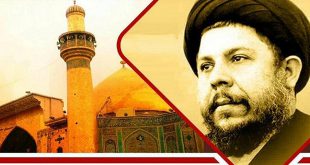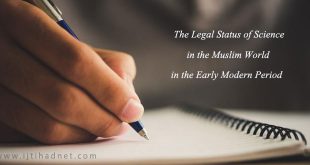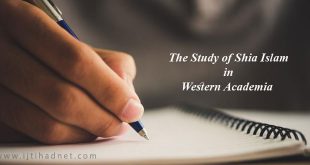Allah (SWT) speaks of some people being oppressed who will be the Imams and leaders of the people and will rule over them. Verse 5 and a part of Verse 6 of Chapter al-Qasas read: وَ نُريدُ أَنْ نَمُنَّ عَلَى الَّذينَ اسْتُضْعِفُوا فِي الْأَرْضِ وَ نَجْعَلَهُمْ أَئِمَّةً وَ نَجْعَلَهُمُ الْوارِثين …
Read More »The Basic Ideas of Shahid Sadr on Islamic Economy
Shahid Sadr holds that Islam, through its distribution methods, can regulate the distribution of economic wealth in the best possible way. In the issue of...
Read More »Mental Health; an Islamic Perspective
The Islamic educational system teaches Muslims the recommendations on human mental health from choosing a spouse, childbearing, breastfeeding and...
Read More »Video: What is the Solution on Coronavirus Pandemic?
While the entire world deals with the pandemic of the corona virus, we witness a stark difference between the Islamic societies and the western-materialist societies. What is the ultimate solution of the problems that the...
Read More »An Interview with a Successful Iranian Youth on the Occasion of Youth Day
The birthday anniversary of Ali al-Akbar, the eldest son of Imam Husayn (as), is honoured as the day of youth in the Islamic Republic of Iran, on this...
Read More »Fatwa of Al-Azhar on Fasting During Ramadan in Coronavirus Era
As the coronavirus sweeps across the world, many questions have been raised on whether Muslims would be able to fast the holy month of Ramadan or...
Read More »Article: The Legal Status of Science in the Muslim World in the Early Modern Period
The following discussion titled “The Legal Status of Science in the Muslim World in the Early Modern Period: An Initial Consideration of Fatwās From Three Maghribī Sources” examines the place that natural science (chiefly astronomy and medicine) occupied in three of the most important collections of legal opinions ( fatwa pl. fatawa) in the Muslim West during the late medieval and...
Read More »Article: The Study of Shia Islam in Western Academia
This paper will examine the historical study of Shi͑ism in Western Academia. It will argue that until the last four decades, Western scholarship studied Shi͑i Islam primarily through a...
Read More »Halal Food, Certification and Halal Tourism: Insights from Malaysia and Singapore
This paper discusses issues of halal food and its role in halal tourism with specific reference to Malaysia and Singapore which have majority and minority Muslim...
Read More »Nature as Viewed by the Holy Qur’an
Nature has always been respectable and heavenly in the eyes of the religious man who regards the world of nature as the scene of divine glory and beauty, and damaging nature as the...
Read More » Ijtihad Network Being Wise and Faithful Muslim in the Contemporary World
Ijtihad Network Being Wise and Faithful Muslim in the Contemporary World









